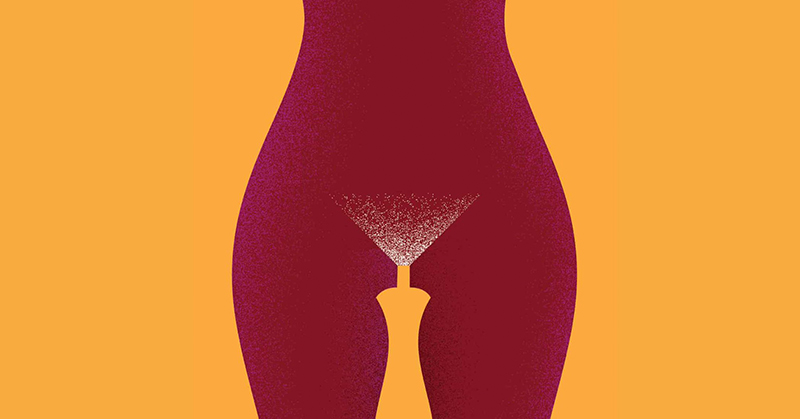Our feminine hygiene industry is dominated by fear, but who is responsible for creating this fear? Was it women who feared their natural cycle was disruptive to society, or was fear imposed on women by the marketing and advertising of ‘fresh feeling’ feminine products?
The language used by the feminine hygiene industry implies that the vagina should be odorless, hairless, and inconspicuous, perpetuating beliefs that have been around since at least the 1930s when fragrances were added to menstrual pads to mask natural odors.
Women’s concerns about their menstrual cycle often lead to self-consciousness, worrying about odors, leaks, and fear of rejection by partners. The marketing of vaginal hygiene products emphasizes words like “fresh” and “clean,” promoting a sense of confidence that their products can disguise what’s happening.
However, this longstanding conditioning of women has led to problems with body image and misconceptions about genital appearance, driving rates of cosmetic genital surgery higher than rates of actual genital diseases. The real issue lies not with the vagina, but with women’s perceptions of themselves.
When it comes to vaginal health, it’s essential to understand how to properly care for your vagina. Avoiding harmful substances like talcum powder, which has been linked to ovarian cancer, is crucial. Research has shown a 33% increase in ovarian cancer risk with genital talcum use.
Instead of relying on unnecessary products and treatments, the best way to care for your vagina is with simple hygiene practices like using water and mild soap for cleaning. Your vagina is self-cleaning and equipped with beneficial bacteria that help maintain its health.
Embrace your womanhood and appreciate the natural functions of your body. There is no need to be ashamed or hide your menstrual cycle or vaginal health. Your body knows how to take care of itself, and simple, natural practices are the best way to support it.






